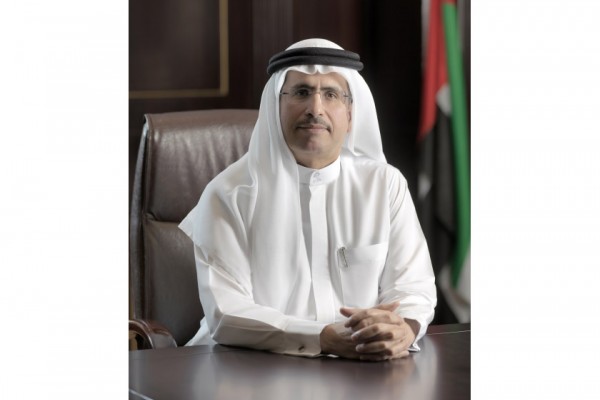Dubai Water & Electricity Authority targets 100% of desalinated water production from clean energy by 2030
- March 23, 2018
- Posted by: administrator
- Category: Environmental, Asia

Saeed Mohammed Al Tayer, MD & CEO of DEWA
The Dubai Water and Electricity Authority (DEWA) is aiming to have 100% of its desalinated water production by 2030 to come from a mix of clean energy that uses both renewable energy and waste heat.
Commenting on World Water Day, Saeed Mohammed Al Tayer, MD and CEO of DEWA, was emphasising the importance of sustainable water resources management is emphasising the importance of sustainable water resources management in light of the worsening global water security situation and steady population growth.
By 2030 DEWA intends to have 100% of its desalinated water production to come from a mix of clean energy that uses both renewable energy and waste heat.
Saeed Mohammed Al Tayer said this would allow Dubai to exceed global targets to use clean energy to desalinate water, commenting:
“ DEWA adopts a clear strategy to ensure that by 2030, 100 % of desalinated water will be produced by a mix of clean energy that uses both renewable energy and waste heat.”
DEWA’s production capacity is expected to reach 305 million gallons of desalinated water per day by 2030. This means reverse osmosis will produce 41% compared to its current share of 5%, and DEWA will be able to produce 750 million gallons of desalinated water per day by 2030, compared to the current capacity of 470 million gallons per day.
“The increase in operational efficiency created by decoupling electricity generation and water desalination will lead to savings of up to AED13 billion by 2030, and reduce 43 million tonnes of carbon emissions by 2030,” Al Tayer added.
Environmental solutions could help solve many global water challenges
DEWA’s CEO described World Water Day as an ideal opportunity to raise awareness about water issues and challenges, and to inspire the public to make a difference and manage water resources sustainably.
“Today, over 663 million people live without water supplies close to their homes. They either spend countless hours or travel long distances to get water, or even face the negative health impacts of using contaminated water.”
DEWA’s CEO said environmental solutions could help solve many of the challenges, including:
- planting new trees
- use of wetlands
- using clean and renewable energy in desalination and water production
- separating electricity production from water.
DEWA is flagging up significant savings achieved in electricity and water use over 9 years, in line with its efforts to achieve the Dubai Plan 2021.
The Authority’s programmes and initiatives have achieved significant savings in electricity and water across all sectors. Between 2009 and 2017, customers saved over 1.677 TW/h of electricity and 6.66 billion gallons of water, worth over AED 1 billion. The savings resulted in offsetting around 900,000 tonnes of carbon emissions.
In the residential sector. electricity use has been reduced by 19% and water by 27% , while the commercial sector reduced electricity use by 9% and water by 29%.
The industrial sector reduced electricity use by 14% and water by 28%. Educational institutions succeeded in reducing electricity use by 10% and water by 24%. Government and semi-governmental organisations reduced electricity use by 12% and water by 21%.
The Demand Side Management Strategy in Dubai aims to reduce power and water consumption by 30% by 2030. DEWA has an effective strategy to optimise energy efficiency for both supply and demand.
Throughout the year, DEWA has launched a range of innovative initiatives, programmes, and rationalisation activities for the residential, commercial, industrial, and government sectors to encourage conservation of electricity and water.
